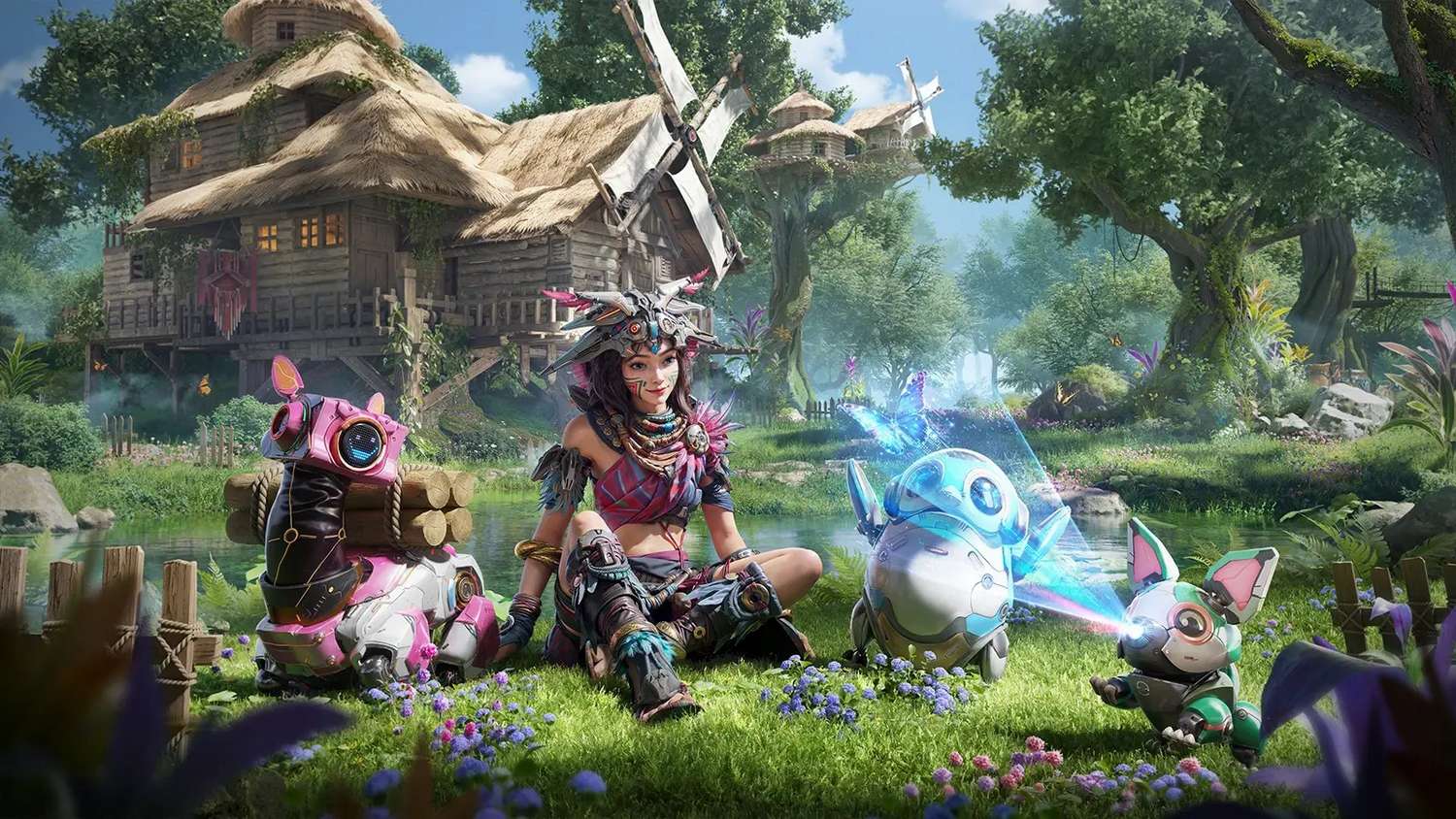Sony Escalates Legal Battle Against Tencent, Demanding Preliminary Injunction Over Alleged ‘Horizon’ Clone
Popular Now
 Call of Duty
Call of Duty
 Minecraft
Minecraft
 Genshin Impact
Genshin Impact
 Grand Theft Auto V
Grand Theft Auto V
 R.E.P.O
R.E.P.O
 Warframe
Warframe
 Valorant
Valorant
 Rust
Rust
 Geometry Dash
Geometry Dash
 Toca Boca World
Toca Boca World  In a significant escalation of the high-profile intellectual property dispute, Sony Interactive Entertainment (SIE) has formally requested a preliminary injunction against Chinese tech behemoth Tencent Holdings Ltd. and its affiliated entities. The move aims to halt the promotion, development, and eventual release of the upcoming open-world survival game, Light of Motiram, which Sony claims is a “slavish clone” and a direct, egregious knockoff of its blockbuster PlayStation franchise, Horizon Zero Dawn and Horizon Forbidden West.
In a significant escalation of the high-profile intellectual property dispute, Sony Interactive Entertainment (SIE) has formally requested a preliminary injunction against Chinese tech behemoth Tencent Holdings Ltd. and its affiliated entities. The move aims to halt the promotion, development, and eventual release of the upcoming open-world survival game, Light of Motiram, which Sony claims is a “slavish clone” and a direct, egregious knockoff of its blockbuster PlayStation franchise, Horizon Zero Dawn and Horizon Forbidden West.
The filing, submitted to the U.S. District Court for the Northern District of California, intensifies a legal conflict initiated by Sony’s copyright infringement and trademark lawsuit in late July. This action demonstrates Sony’s unwavering commitment to defending its proprietary game development and the multi-billion dollar IP established by Guerrilla Games.
 The Core of Sony’s Injunction Request: Protecting the Aloy Character Mark and IP Value
The Core of Sony’s Injunction Request: Protecting the Aloy Character Mark and IP Value
The preliminary injunction is a critical legal maneuver designed to prevent irreparable harm while the main lawsuit proceeds. Sony argues that the continued promotion and eventual release of Light of Motiram will cause immediate and ongoing damage to the Horizon brand, dilute the value of its intellectual property, and create significant consumer confusion in the competitive video game industry.
Key demands in the injunction request include:
- Barring the Aloy Lookalike: Specifically targeting the use of a central protagonist in Light of Motiram described by Sony as a “fierce tribal warrior huntress characterized by fiery red hair.” Sony asserts this character is a direct copy of its iconic lead, Aloy, who serves as a crucial symbol for the PlayStation brand and the Horizon universe.
- Stopping Promotional Material: Preventing Tencent from utilizing any marketing assets, trailers, or screenshots that feature elements allegedly copied or derived from the Horizon works, including the distinct visual style, the post-apocalyptic world populated by robotic animal-like machines, and unique tribal aesthetics.
- Halting Development: Seeking an order to enjoin Tencent from further reproducing, preparing derivative works of, or distributing any works copied from the Horizon titles, effectively demanding a significant redesign or suspension of the project.
Sony’s court documents underscore the company’s belief that Tencent is attempting to “trade off of the Aloy’s Character Mark’s goodwill and reputation.” This is a significant claim, highlighting the substantial financial and reputational investment Sony has made in its exclusive gaming franchise. The documents further cite numerous media and fan reactions that immediately labeled Light of Motiram as an “obvious knock off” upon its initial reveal in late 2024, proving the public perception of the similarities.
Tencent’s Counter-Arguments: ‘Well-Trodden Tropes’ and a ‘Shell Game’ Allegation
Tencent, in its previous motion to dismiss the lawsuit, firmly rejected Sony’s claims, arguing that Light of Motiram merely utilizes “time-honored tropes” and ubiquitous genre ingredients common to a wide array of other successful open-world games, such as The Legend of Zelda: Breath of the Wild and Far Cry titles. The Chinese giant’s legal defense frames Sony’s action as an overreach, an attempt to monopolize entire genre conventions of sci-fi and adventure games.
In a blistering response to Tencent’s defense, Sony’s latest filing slams the counter-arguments as “nonsense.” Furthermore, Sony has accused Tencent of engaging in a “shell game” with its complex network of subsidiaries and development studios to obfuscate liability and confuse the court regarding the true corporate entity responsible for the alleged infringement. This tactic, Sony argues, is a deliberate attempt to shield itself from the legal consequences of the alleged IP theft.
Adding to the controversy, Sony’s documents allege that Tencent’s development team previously approached SIE in 2024 to secure a license for a Horizon collaboration, a request that was declined. Sony suggests that the subsequent announcement of Light of Motiram—complete with startling similarities—indicates a calculated decision to proceed with the project despite the rejection, using confidential knowledge of the Horizon IP’s inner workings.
 The Stakes: Intellectual Property in the Global Gaming Market
The Stakes: Intellectual Property in the Global Gaming Market
This legal confrontation holds massive implications far beyond the two companies. It serves as a high-stakes litmus test for intellectual property rights enforcement in the global video game market, especially concerning genre conventions and character design. For Sony, a successful injunction would be a powerful defense of its exclusive content and a strong deterrent against future plagiarism attempts. For Tencent, a company with significant global investments in gaming and a massive mobile gaming and PC footprint, a loss could force a costly and time-consuming redesign of a major upcoming title, potentially impacting its market penetration in the lucrative Western territories. The outcome of this preliminary injunction request—anticipated before the end of the year—will set a significant precedent for how original game design elements are protected in the increasingly crowded and competitive world of AAA gaming.
The ongoing legal drama underscores the immense value placed on creative assets like the Aloy character and the distinct visual world of Horizon. As the legal proceedings move forward, the global gaming community and investors will be watching closely to see whether a court will agree with Sony’s assessment that the damage is already done and requires immediate judicial intervention.








 The Core of Sony’s Injunction Request: Protecting the Aloy Character Mark and IP Value
The Core of Sony’s Injunction Request: Protecting the Aloy Character Mark and IP Value The Stakes: Intellectual Property in the Global Gaming Market
The Stakes: Intellectual Property in the Global Gaming Market